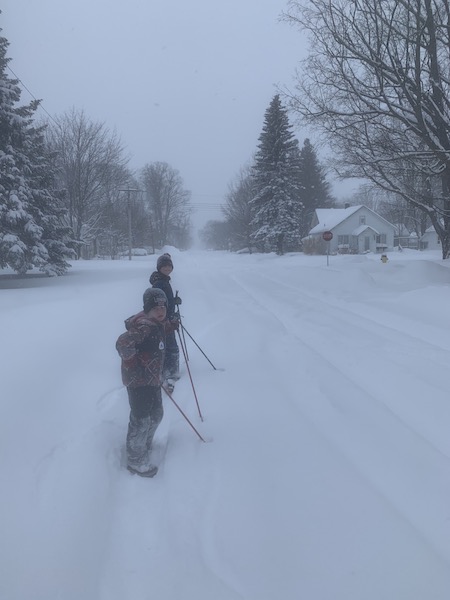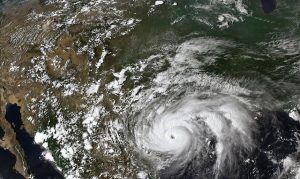Weather reporters should mention climate change

We know extreme weather events are linked to climate change, so why isn’t this part of every report?
Whenever I turn on the radio to listen to the weather report, I get irritated. It seems the weather reporters can’t decide what they themselves think of the weather, especially during winter. Either they’re sensationalizing every weather event as if it were a once-a-century storm of near-apocalyptic proportions, or else they’re lamenting the deviation of temperature from what they consider comfortable – even if that deviation is entirely appropriate for the season. As I wrote last year, “Normal winter weather is not a crisis!”
I realize that the purpose of a daily weather forecast has changed considerably over past decades. Now it’s less about preparing for a day of outdoor labor and more about satisfying curiosity, so it makes sense that reporters will do anything to grab eyeballs and ears and keep them riveted for as long as possible. But I think that this style of dramatic reporting does people a disservice.
Mainly, it fuels a sense of disconnection from the natural world by constantly vilifying weather cycles that are a normal part of life in certain regions – particularly in cold, wintry regions like Ontario, Canada, where I live, and where big snowstorms are precisely what we want in February, not mud puddles and sprouting spring flowers. And yet, when heavy snow does come (like last week’s storm), you’d think the sky was falling, based on how it was reported. This approach is also grossly unfair to businesses that rely on normal winter weather because it discourages people from going outside. (I ignored last week’s dire warnings and hit the ski slopes for the best, most powdery day of skiing I’ve had in a long time… with hardly anyone around.)
There is another way.
Here is an alternative suggestion. What if weather reporters used their special position to spread the word about climate change and explain in simple terms how greenhouse gas emissions are driving many of the unseasonal changes we’re witnessing? They’re perfectly situated to do this, holding all those eyeballs and ears as they do, well-educated in the science behind weather phenomena, and able to give solid, relatable examples in real time. In fact, former British weather presenter Francis Wilson recently told the Guardian that forecasters have a “moral obligation” to explain that extreme weather events are linked to climate change.
“We need to tell people to stop warming the atmosphere, to stop adding carbon dioxide to the atmosphere,” he said. “That way, viewers won’t lose sight of the fact that they can actually do something about it.”
Of course, forecasters are hired by networks that push certain political viewpoints, so unfortunately in this day and age not every TV channel or radio station would be willing to do this. But the weather is hardly ever a truly objective report, peppered as it is with commentary and complaints from show hosts, so adding a climate change-centric lens is not an unrealistic suggestion.
I think it would benefit a lot of people to hear climate change mentioned regularly on the radio or TV in the context of weather. It drives the point home, makes it real, and is more likely to spur people to action when they see how climate change is already affecting their day-to-day life, not just far-off places. After all, the changes are coming, whether we like it or not. Wilson said, “Across the world, storms will be fiercer, floods will be deeper, droughts will be longer, deserts will be drier and wildfires will be wilder,” so we’d better start talking about it.
Now if only the forecasters could stop complaining about their personal preferences, they could become prophets of change, bearers of knowledge, and founts of inspiration, living up to their true potential.
We know extreme weather events are linked to climate change, so why isn’t this part of every report?
Please enable JavaScript to view the comments.







